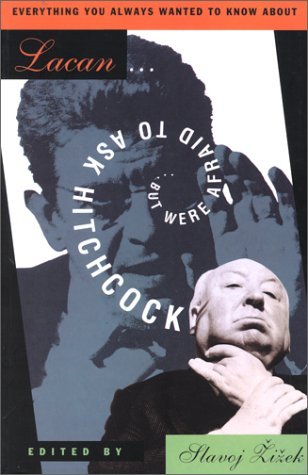Difference between revisions of "Everything You Always Wanted to Know About Lacan (But Were Afraid to Ask Hitchcock)"
| Line 1: | Line 1: | ||
| − | [[ | + | [[Image:EverythingLacan.jpg |right|frame]] |
| − | |||
| − | |||
| − | |||
| − | |||
| − | |||
| − | |||
| − | |||
Žižek, S. (ed.) (1992) Everything You Always Wanted to Know About Lacan | Žižek, S. (ed.) (1992) Everything You Always Wanted to Know About Lacan | ||
(But Were Afraid to Ask Hitchcock), London and New York: Verso. | (But Were Afraid to Ask Hitchcock), London and New York: Verso. | ||
| Line 22: | Line 15: | ||
this is a very entertaining and accessible mixture of film studies and | this is a very entertaining and accessible mixture of film studies and | ||
psychoanalysis. | psychoanalysis. | ||
| + | |||
| + | [[Category:Works]] | ||
| + | [[Category:Books]] | ||
| + | [[Category:Žižek]] | ||
| + | [[Category:Psychoanalysis]] | ||
Revision as of 05:23, 2 May 2006
Žižek, S. (ed.) (1992) Everything You Always Wanted to Know About Lacan (But Were Afraid to Ask Hitchcock), London and New York: Verso. As loyal Žižek readers will know, no Žižek book is complete without a reference to an Alfred Hitchcock film. Here, what is usually just an incidental affection for the director's work is expanded to a book- length passion. Žižek and the other authors in this volume (including Fredric Jameson and Mladen Dolar) adopt what Žižek describes as a transferential relationship towards Hitchcock, one which allows that even the smallest details of his films are meaningful. This 'meaning- fulness' extends to the fact that, for Žižek, Hitchcock's films portray the three main types of subjectivity which correspond to the three main stages of capitalism. Probably the best of the books edited by Žižek (although well over a third is actually written by him as well), this is a very entertaining and accessible mixture of film studies and psychoanalysis.
